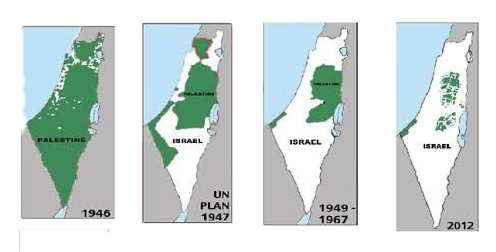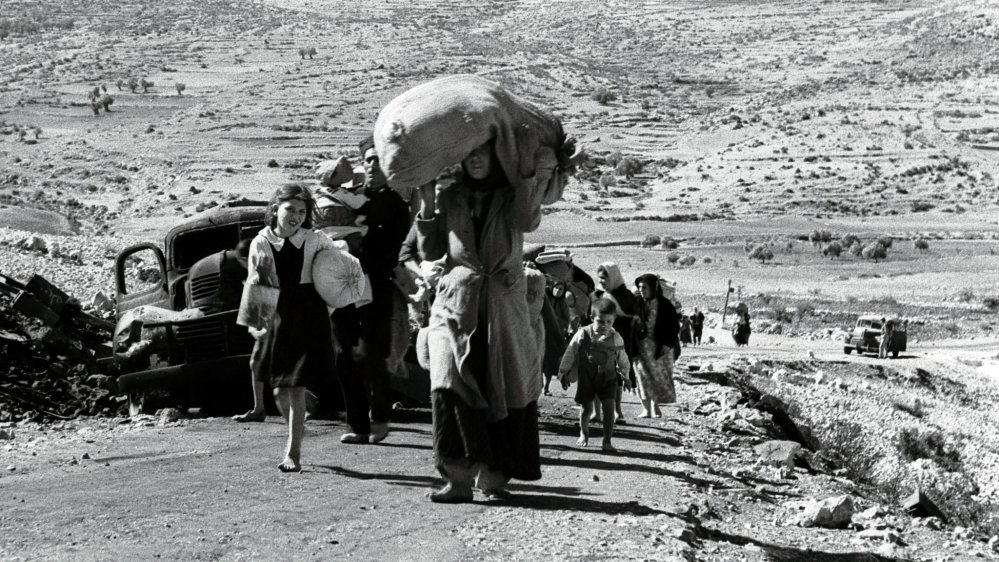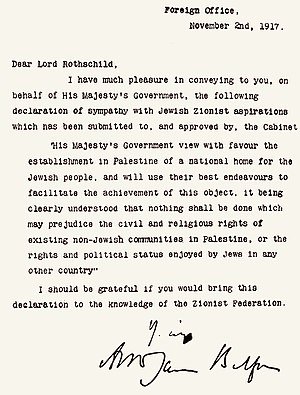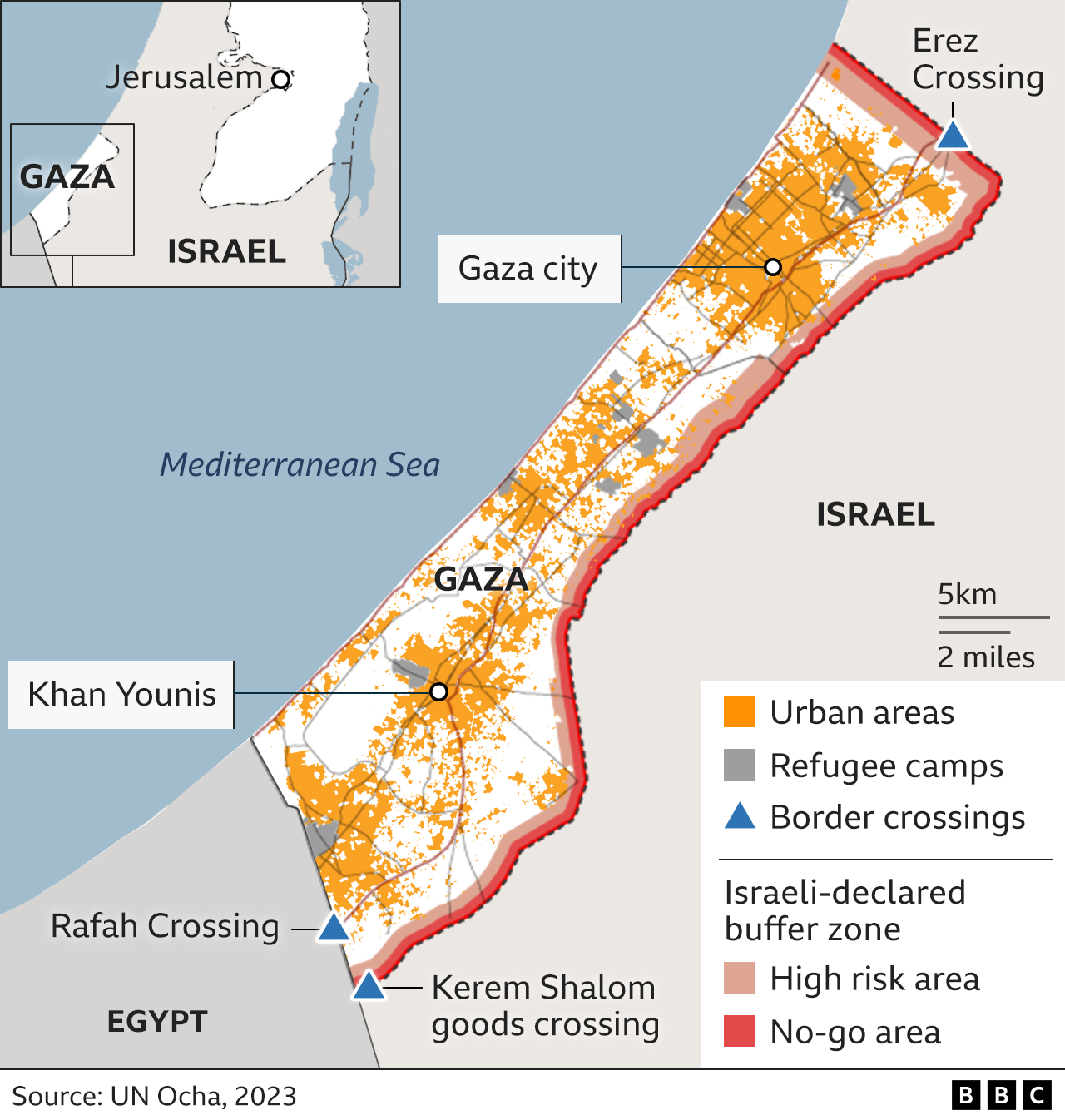Seventy-five years have passed since the Palestinian people were for the first time ethnically cleansed and
forcibly expelled
from their homes, lands, and property in their ancestral land during the 1948 Nakba (meaning ‘catastrophe’
in
Arabic). Palestine was a multi-ethnic and multi-cultural society before the Nakba. It was not an empty land
like
the Zionists claims it to be.
It was part of a rich and fertile Eastern Mediterranean world, but the
colonization turned this process into a disaster for the native people living there.
Learn here about the struggle of the Palestinians and how America, Britain, and its Western partners are
complicit in this (ongoing) genocide.
Table of Contents:
In every instance where Zionists deny or obscure the facts, there is an apparent reluctance to acknowledge the deliberate and systematic displacement of the native population. This denial often goes hand in hand with an effort to shift the blame onto the Palestinian people, who have suffered greatly. Furthermore, there is a tendency to label criticism of Israel as antisemitism, or to accuse critics of being aligned with Hamas. This rhetoric serves to divert attention from the historical and ongoing actions that have resulted in significant hardship for the Palestinian people.
Every year, on May 15, Palestinians across the globe observe Nakba Day. This date commemorates the significant
events of 1948, which many Palestinians view as the beginning of a catastrophic period for their people.
This was also the day when the colonizers established their state, the state of Israel. The process of
colonizing the country Palestine involved a series of conflicts and upheavals, leading to the displacement of a
vast number of Palestinians from their homes. The Zionists sought and still seek to replace the native
population.
The backdrop of these events was a November 1947 resolution by the UN General Assembly, proposing the partition
of Palestine into two separate states - one for Jewish people and another for Arab inhabitants, with Jerusalem
to be governed by the UN. This plan, however, was met with resistance from Arab communities who believed it to
be unjust and a violation of the principles of the UN Charter. The period that followed saw escalating violence.
attacks by Zionist militias on Palestinian villages, resulting in the slaughtering of thousands of Palestinians
and the forced displacement of thousands of Palestinians.
Throughout history, the narrative around the Israeli-Palestinian conflict has often been shaped by misconceptions and one-sided perspectives. A critical examination reveals that Palestinians have long been portrayed inaccurately as the aggressors, while in reality, they have faced significant challenges and injustices.

A key example of this misrepresentation is the widely propagated claim that Arab armies intended to expel Jews and urged Palestinians to abandon their homes which caused the Nakba. This narrative unfairly shifts the blame for Palestinian displacement onto Arab leaders, portraying the Zionist movement as mere victims of a supposed anti-Semitic plot. Yet, this overlooks the crucial question: why, after more than seven decades, are Palestinians still denied the right to return to their ancestral homes?

The foundation of Zionism, as advocated by Theodor Herzl, was presented as a solution to
the anti-Semitism
prevalent in Europe during the late 19th century. Herzl and other proponents of Zionism saw the establishment of
a Jewish state as a necessary response to centuries of persecution. However, this led to the problematic
conflation of religious identity with a nationalistic endeavor, asserting that Jewish people constituted a
distinct nation or race deserving of an independent state.
This ideology sparked a significant movement from the 1880s onwards, with thousands of Jews from Eastern Europe
and Russia immigrating to Palestine. Driven by the harsh realities of anti-Semitic persecution and the allure of
Zionist ideals, these settlers arrived in Palestine, often without legal permission. Their arrival and
settlement were influenced not only by the desire for safety but also by the Zionist aim of establishing a state
in what they viewed as their biblical homeland.
While early Zionist leaders considered various locations for a Jewish state, including Uganda and Argentina,
they ultimately focused on Palestine, drawing upon biblical narratives that designate the land as a divine
promise to the Jewish people. This historical perspective, deeply rooted in religious belief, has been a central
and contentious aspect of the Zionist ideology.
At this time, the Palestinian Jewish community, the Yishuv, constituted merely three percent of the total
population. Unlike the later Zionist immigrants, the original Yishuv did not pursue the establishment of a
modern Jewish state in Palestine.
Following the collapse of the Ottoman Empire (1517-1914), Britain, under the secret Sykes-Picot treaty of 1916
with France, occupied Palestine to further their imperial interests in the Middle East. In 1917, the British
government issued the Balfour Declaration, which pledged to support the creation of a Jewish national home in
Palestine – a promise made concerning a land that was not theirs to offer.
This commitment was largely influenced by Chaim Weizmann, a Russian Zionist leader based in Britain, who,
through his connections with the British government, successfully lobbied for this public commitment. The
British, seeking to secure support from significant Jewish populations in the US and Russia during World War I,
saw the Balfour Declaration as a strategic move to also maintain control over Palestine post-war.

From 1919, Zionist immigration to Palestine significantly increased, supported by the British. Weizmann, who later became the first president of Israel, envisioned transforming Palestine to be “as Jewish as England is English.” This immigration surge dramatically altered the demographics, with the Jewish population rising from nine percent to 27 percent between 1922 and 1935, leading to the displacement of tens of thousands of Palestinians.
Palestinian intellectuals had been voicing concerns about the motives of the Zionist movement since as early as
1908. With the rise of the Nazi regime in Germany, the influx of European Jews to Palestine further intensified.
In response to British support for Zionist settler-colonialism, the Palestinian Arabs initiated the Arab Revolt
in 1936. The British violently suppressed this uprising, which lasted until 1939, resulting in widespread
destruction of Palestinian homes, mass incarcerations, torture, and the deportation of Palestinian nationalist
leaders. The revolt ended with a significant portion of the Palestinian male population killed, wounded, exiled,
or imprisoned.
This historical context underscores a narrative often overlooked: the struggle and displacement of the
Palestinian people in the face of Zionist expansion and British imperialist policies.
Between the years of 1947 and 1949, a heartrending chapter unfolded in the history of Palestine. In this period,
a staggering 750,000 Palestinians, out of an original population of 1.9 million, found themselves uprooted and
turned into refugees. This was a time of profound sorrow and loss, as 78% of historic Palestine was seized by
Zionist forces. In a campaign marked by severe trauma and displacement, approximately 530 Palestinian villages
and cities were obliterated, and the lives of around 15,000 Palestinians were tragically slaughtered by the
Zionists. This period was scarred by a series of mass atrocities and more than 70 massacres, epitomizing the
brutality of ethnic cleansing.
The date of May 15, 1948, is etched in the collective memory of the Palestinian people as the official day of
remembrance for the Nakba, meaning 'catastrophe' in Arabic. However, it's crucial to understand that the agony
of the Palestinian displacement began well before this date. Indeed, by the time May 15 arrived, about half of
the eventual total number of Palestinian refugees had already been forcibly driven from their homes and lands.
This earlier phase of the Nakba set in motion a relentless and painful exodus, marking the beginning of an
enduring struggle for rights, recognition, and the longing for a return to their homeland.

Salman Abu Sitta was just a ten-year-old boy when the tragedy of the Nakba unfolded, violently uprooting him
from his home near Beersheba. In his own words during an interview with Al Jazeera, the experience was brutally
straightforward: “They seized my home through sheer force, turning me into a refugee. All I desire is to reclaim
my home, to live there in peace and with dignity.”
The events of 1948, known as the Nakba, were not isolated incidents but rather part of a larger scheme, one that
involved the British Mandate. In this turmoil, around 750,000 villagers, who miraculously survived horrific
massacres, were violently ripped away from their ancestral lands. These were lands richly cultivated for
centuries, a testament to the deep connection between the people, their hard work, the soil, and the sun. This
reality sharply contrasts with the misleading narrative propagated by Zionist settlers, who claimed to have
arrived in a barren land and made the desert flourish.
Salman Abu Sitta, now a renowned Palestinian researcher, poignantly challenges the often-touted myths and
fabrications surrounding this period. He states, “No other colonizing movement has relied so heavily on a
concoction of myths, falsehoods, and media manipulation. This approach was not necessary for the Palestinians;
their truth was evident. On the other hand, Zionism required such tactics, blatantly contradicting every tenet
of international law and the undeniable truths of history and geography.”
In his seminal work,
"The Atlas of Palestine," Abu Sitta meticulously documents the fate of these 530 villages,
offering an unvarnished look at the realities faced by the Palestinian people during this dark chapter in
history.
Members of the Jewish community have protested against the actions of the terrorist state of Israel, stating
that "Zionism is not Judaism" or that "anti-Zionists are not anti-Semitic."
What do these terms mean and why should these distinctions be made? Although Judaism and Zionism are two
different terms that are often intertwined, in reality, they represent quite different concepts with different
historical, cultural, and especially political implications and why Zionism is an ideology compared to
terrorism.
Judaism is a religion and cultural identity that has developed over millennia, while Zionism is relatively new
and is a political ideology centered on the creation and maintenance of a Jewish state in Palestine.
Understanding these differences is crucial to appreciating the complex dynamics within Jewish communities and
the broader political landscape of the Middle East.
Theodor Herzl is the founder of the political form of Zionism. He organized a World Congress of Zionists that
met in Basel, Switzerland, in August 1897 and became the first president of the World Zionist Organization,
established by the congress. The founder, Theodor was a journalist, propagandist, and diplomat who had much to
do with making Zionism into a political movement of worldwide significance.
Herzl's approach and philosophy were deeply rooted in the European settler colonial mindset, drawing parallels
between the envisaged Jewish state in Palestine and the British colonial footprint in India. This perspective
significantly influenced early Zionist thinkers, shaping the movement's future direction.
A pivotal moment in Zionism's history occurred on August 23, 1903, when Herzl announced a groundbreaking offer
from the British Empire at the Sixth Zionist Congress. British Secretary Joseph Chamberlain proposed allocating
5,000 square miles of Kenyan territory for a Jewish state, a plan that ignited intense debate among Zionists and
East African British settlers. Despite its controversy, the Uganda Plan was ultimately declined.
The core aim of Zionists was to reestablish a Jewish homeland in Palestine. Between 1882 and 1903, approximately
35,000
Zionists
immigrated to Palestine, forming illegal settlements. This number grew to 40,000 between 1904
and 1914, underlining the movement's commitment to establishing a presence in the region.
Palestine's history from 1517 to 1917 under the Ottoman Empire's rule set the stage for significant changes. The
Balfour Declaration
in 1917, issued by British Foreign Secretary Arthur James Balfour, supported the
establishment of a Jewish homeland in Palestine. This declaration, aimed at garnering support for the Allies in
World War I, marked a critical juncture in Palestine's history.
Britain acknowledged the potential of establishing a Jewish homeland in
Palestine, seeing it as a strategic move that complemented its own interests in the region. This historic
decision paved the way for the Jewish community to lay the groundwork for their own state, under the protective
umbrella of British support.
With the backing of His Majesty’s Government, the Zionist population in Palestine was empowered to build the
essential infrastructure needed for a burgeoning state. This support was not just diplomatic, but also military,
with British bayonets providing a shield against potential threats.
Israel's approach to the Palestinians has often been criticized as aggressive and unyielding.
For them, violence is not incidental, accidental, or coincidental. It is part and parcel of its colonial DNA.
This sentiment was starkly reflected in a controversial statement made by Prime Minister Benjamin Netanyahu in
2001, where he emphasized a harsh stance against the Palestinian people,
“Beat them up, not once but repeatedly, beat them up so it hurts so badly until it’s unbearable.”
The historical context of this conflict is critical. In 1948, U.S. President Harry Truman played a pivotal role
in the establishment of Israel as a state. He was the first world leader to officially recognize Israel, a
decision that came just 11 minutes after it declared independence. This moment was a turning point in Middle
Eastern politics and has had lasting implications for the Palestinian people.
Truman's recognition of Israel was not a straightforward decision; it was the culmination of extensive
deliberation and conflicting viewpoints within his administration. Some advisors saw the creation of a Zionist
state as beneficial to American interests.
“It is my responsibility to see that our policy in Israel fits in with our policy throughout the world; second,
it is my desire to help build in Palestine a strong, prosperous, free, and independent democratic state. It must
be large enough, free enough, and strong enough to make its people self-supporting and secure,” President Truman
said in a speech on October 28, 1948.
Truman said in the video that the occupiers should not take Palestine in one swoop but in bits. He also said
that
the Palestinians were fairly compensated for the lands they had to give up. However, the Zionist government
linked
the property losses of Palestinians to those of Jews from Arab countries who migrated to Israel; leading to
inadequate compensation for many Palestinians.
American support for Israel has been the cornerstone of their terrorist crimes in Palestine and the rest of the
Middle East. This support has included significant financial aid, amounting to $158 billion in bilateral
assistance
and missile defense funding up to March 1, 2023. While officially aimed at promoting “peace” and "security",
critics argue that this aid has also facilitated the continuation of policies detrimental to the Palestinian
cause.
One of the most notable aspects of U.S. support for Israel is its use of veto power in the United Nations
Security
Council (UNSC). The Security Council, tasked with maintaining international peace, can enact legally binding
resolutions, including sanctions and military action. However, the veto power held by permanent members,
including
the U.S., has often been used to shield Israel from international criticism. As of January 2024, the U.S. has
vetoed at least 53 UNSC resolutions critical of Israel, a testament to its unwavering support for the nation.
As of Jan 2024, the United States has vetoed dozens of United Nations Security Council (UNSC) resolutions
critical
of Israel, at least 53 since 1972, according to
UN
data.
The ongoing support of Western countries, particularly the U.S., has been crucial in shaping the
Israel-Palestine conflict.
The Western countries cannot preach peace as they allow a colonization project in Palestine and fund them the
means
to continue with their atrocities.
In 2005, Israel withdrew its army and settlers from the Gaza Strip, removing 21 settlements. This action, often portrayed as a gesture of goodwill, was a response to the reality that these settlements were illegal under international law. Even Ariel Sharon, the Israeli Prime Minister at the time, acknowledged their illegality and the harm they caused to both Israelis and Palestinians. Despite this withdrawal, Gaza was never fully returned to the Palestinians. They were allowed to reside there, but Gaza remained under a stringent Israeli blockade, affecting land, sea, and air access. This situation led the United Nations and the International Committee of the Red Cross to continue classifying Gaza as occupied territory.
Describing the dire situation, Sinn Fein's Gerry Adams said, “This is a total denial of the rights of the people
of Palestine. This is an open-air prison. People can’t travel out of here; they can’t travel in.” Echoing this
sentiment, The New York Times reported, “The vast majority of Gazans cannot leave Gaza…Prime Minister David of
Britain in 2010 called Gaza ‘an open-air prison’, drawing criticism from Israel. But in reality, the vast
majority of Gazans are effectively trapped.” This term ‘open-air prison’ not only signifies the limited mobility
of Gazans but also underscores Gaza's lack of independence, with Israel being the occupying power. The
Washington Post further highlighted this, stating, “Gaza has been turned into an open-air prison, with all its
borders – land, sea, and air – controlled by Israel.”
Before the 2023 genocide, many Gazans were dissatisfied with Hamas’ rule in Gaza. However, the severe
restrictions imposed by Israel on goods made it clear that Hamas was not solely to blame. The Guardian provided
insight into this, saying, “The Palestinians can be blamed for weak leadership… but the impoverishment and
fragmentation of Gaza is a result not just of tribal Palestinian politics, but of the cumulative despair
generated by living in an open-air prison. As Israel is the jailer, it bears responsibility too for the
conditions inside.”
In February 2005, the well-known British street artist Banksy visited the Gaza Strip to draw attention to the
Palestinians' plight. Commenting on his murals, Banksy said: “Gaza is often described as ‘the world’s largest
open-air prison’ because no one is allowed to enter or leave. But that seems a bit unfair to prisons—they don’t
have their electricity and drinking water cut off randomly almost every day.”
Human Rights Watch highlighted the economic devastation in Gaza caused by over fifteen years of closure, saying,
“The restrictions of the occupiers are depriving the Gazans, two million residents of living a better life.”
This situation not only affected the Gazans' quality of life but also contributed to the fragmentation of the
Palestinian people and was part of Israel’s crimes against humanity, including apartheid and persecution against
millions of Palestinians.
With Gaza's airport bombed by the Israelis and its operations halted after just two years, travel for
Palestinians in Gaza became nearly impossible. Israel’s closure policy effectively barred Gazans from traveling
to the West Bank, hindering professionals, artists, athletes, students, and others from pursuing opportunities
even within Palestine. Omar Shakir, Israel and Palestine director at HRW, reflected on this grim reality,
stating, “Israel, with Egypt’s help, has turned Gaza into an open-air prison. As many people around the world
are once again traveling two years after the start of the COVID-19 pandemic, Gaza’s more than two million
Palestinians remain under what amounts to a 15-year-old lockdown.”
Since 2007, Israel has severely restricted Palestinian movement through the Erez crossing, barring most from
leaving Gaza. This has prevented the operation of an airport or seaport in Gaza, further isolating the
territory. Most Palestinians in Gaza, living under this closure, have never left the small 40-by-11 kilometer
(25-by-7 mile) area. Walaa Sada, a 31-year-old filmmaker, expressed her frustration, saying that despite her
efforts to obtain permits for film training in the West Bank, Israeli authorities never responded. She lamented,
“The world narrowed when I received these rejections, making me feel stuck in a small box.… For us in Gaza, the
hands of the clock stopped. People all over the world can easily and quickly book flights and travel, while we …
die waiting for our turn.” The Israelis have done everything in their power to prevent a Palestinian state.

On December 18, 2023, Benjamin Hitler openly boasted about preventing the establishment of a Palestinian state,
and Israeli Culture and Sports Minister Miki Zohar declared, “We will never allow the establishment of a
Palestinian state.”
As the occupying power, Israel is obligated under international humanitarian law to ensure the welfare of
Gazans. Palestinians also have the right under international human rights law to freedom of movement, a right
that Israel can only restrict in response to specific security threats. After 75 years of occupation and 15
years of closure in Gaza, Israel should fully respect the human rights of Palestinians, using as a benchmark
This chapter is currently under development. We apologize for any inconvenience. It's important to note that the
Palestinian experience involves complex and significant challenges, and our aim is to ensure that every aspect
is presented with accuracy and thoroughness.
Remember. The Israelis tell you. The Palestinians shows you

It has been revealed that CNN, an international news organization, is subject to significant... Read more
7 min

In a deeply troubling development, the fate of numerous Palestinian children, including a baby,... Read more
4 min

In a series of concerning reports, Israel has been accused of grave human rights violations against... Read more
3 min

Mia Schem is a 21-year-old Israeli French citizen. She was kidnapped by Hamas after fleeing the... Read more
3 min

In a controversial incident raising serious ethical and legal questions, the Israeli military,... Read more
2 min

Were the Jewish settlers a people? Recent scholarship has repeated doubts expressed many years ago... Read more
21 min

In a development that has sent shockwaves through the international community, Yoav Gallant, the... Read more
5 min

Palestine was not an empty land. It was part of a rich and fertile eastern Mediterranean world that... Read more
14 min